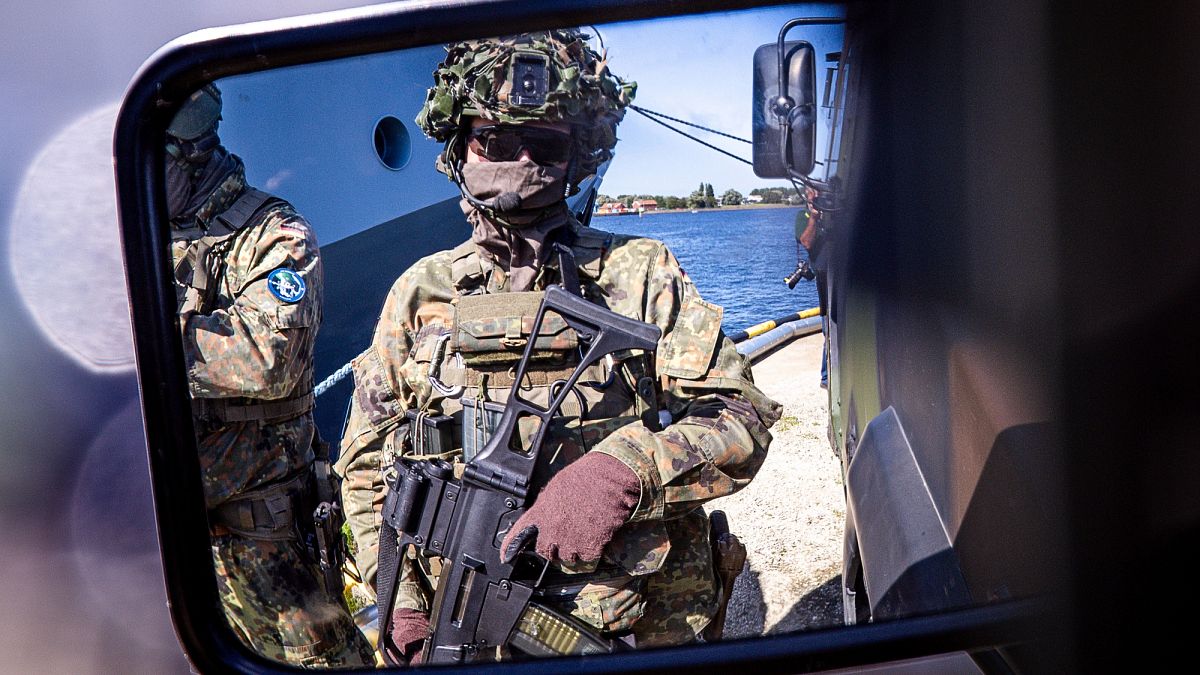A soldier who was convicted of attempted espionage has been sentenced to two years in military detention and dismissed from the army.
The soldier handed over sensitive information to a person who he thought was a foreign agent but was really part of an undercover sting.
He admitted charges of attempted espionage, dishonestly accessing a computer system and possessing an objectionable publication, at the start of a court martial hearing at Linton Military Camp, near Palmerston North, on Monday.
The attempted espionage charge dated to December 2019 when the soldier attempted to hand information to the undercover agent.
“This was not a sophisticated espionage plot,” chief judge Kevin Riordan told the court as he explained the sentence. “Indeed, the court wonders how you could’ve been so naive.”
Nonetheless, any offending that put New Zealand’s security and its military at risk was serious, the judge said.
“There is no such thing as a non-serious act of espionage. There is no trivial act of espionage.”
Judge Kevin Riordan said the outcome of the court martial aimed to deter others from acting in a similar way. (Source: 1News)
The soldier would serve his sentence at Burnham Military Camp south of Christchurch.
The sensitive information shared by the solider included phone directories for three military camps, the Hokowhitu campus in Palmerston North and the Messines Defence Centre.
He attempted to hand over maps and an annotated photo of Linton Military camp, along with a document setting out its security vulnerabilities.
He also attempted to hand over his own ID card, access codes and information allowing for unauthorised access to Linton and Ohakea air base, as well as his name and passwords, which allowed unauthorised access to the Defence Force system.
The judge and a military panel of three senior officers began their sentencing deliberations at 1pm on Tuesday.
Before giving the sentence, Judge Riordan discussed an affidavit from the solider in which he expressed some regret for those actions.
“I fully understand why my former colleagues might think badly of me,” the judge read.
He called this “a step in the right direction” that was tempered by self-interest.
“There is still a flavour in it that you are sorry that you carried out your activities because of all the trouble it has brought to you. Rather than being sorry for the trouble it has brought everybody else.”
Elsewhere in the affidavit, the solider claimed to “love his country”.
“A person who loves their country does not provide material to its detriment to a foreign country,” Riordan said.
Instead, the solider “loved a version of the country in his mind”, the judge added.
This was the first military prosecution for espionage or attempted espionage.
Individual’s actions ‘deplorable’ – army chief
In a statement, Chief of Army major general Rose King said the individual’s actions “were deplorable”.
“They were incredibly poorly judged and brought risk to all of those he served alongside, as well as the wider New Zealand public, and struck to the very core of what we as a Defence Force have a sworn duty to protect,” he said.
“Through incredible efforts and work across our security agencies, including the New Zealand Police and intelligence community, the true cost of these crimes was not realised, and I am both grateful and incredibly proud of the authorities’ work to ensure that was the case.
“I want to assure the public that we let this serve as a reminder to anyone who does not subscribe to the ethos and values of the Defence Force – there is no place for individuals like them in our organisation.”
King said the prosecution of this case is a “clear signal to not only anyone considering similar actions, but also to the New Zealand public whose trust in us is vital”.
“There will be zero tolerance of these behaviours and actions.”











